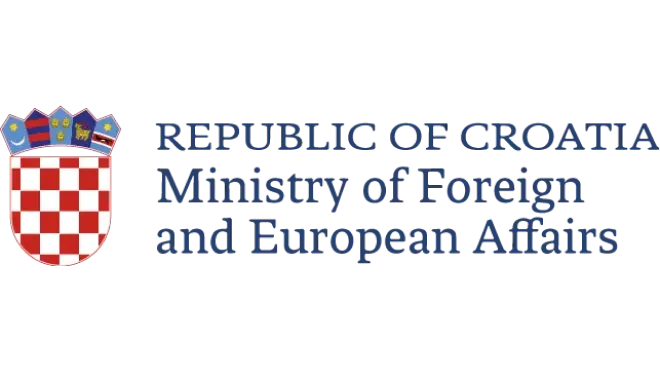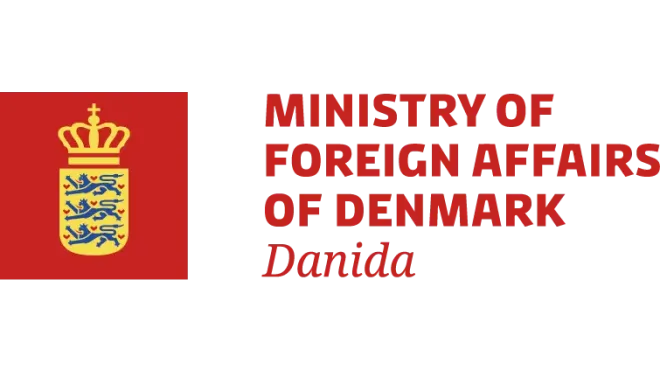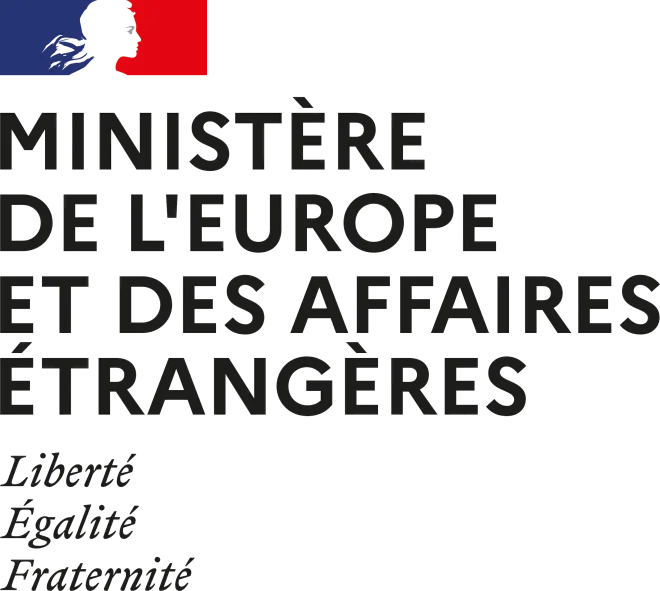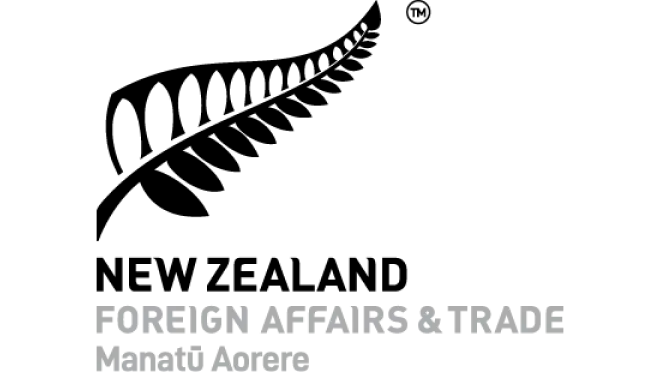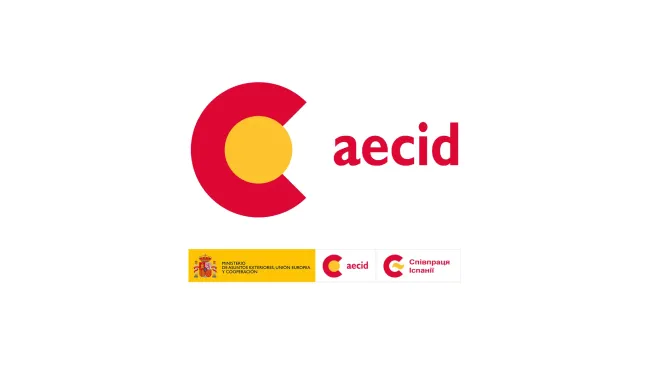To mark International Mine Awareness and Assistance Day 2024, UNDP Ukraine and the Legacy of War Foundation have launched a new photo exhibition "Defining Futures: People, Tech and Teams for a Mine-Free Ukraine" by photographer Giles Duley, United Nations Global Advocate for people with disabilities in conflict and peacebuilding situations.
The exhibition aims to raise awareness about mine action and mine victim assistance in Ukraine by featuring a mosaic of experiences – from those of a professional deminer and a war veteran, to those of a medical worker and a politician.
Giles Duley, landmine survivor and UN Global Advocate says: "With the exhibition I hope to bring home the realities of landmine and unexploded ordnance contamination in Ukraine. All I ask is that as governments, NGOs, business, individuals – we ask ourselves that question: Are we doing all we can to make sure the legacy for future generations is one of peace and safety in a landmine free Ukraine? If my work means one child does not die or is not injured, then all I do will have been worthwhile. That is my purpose."
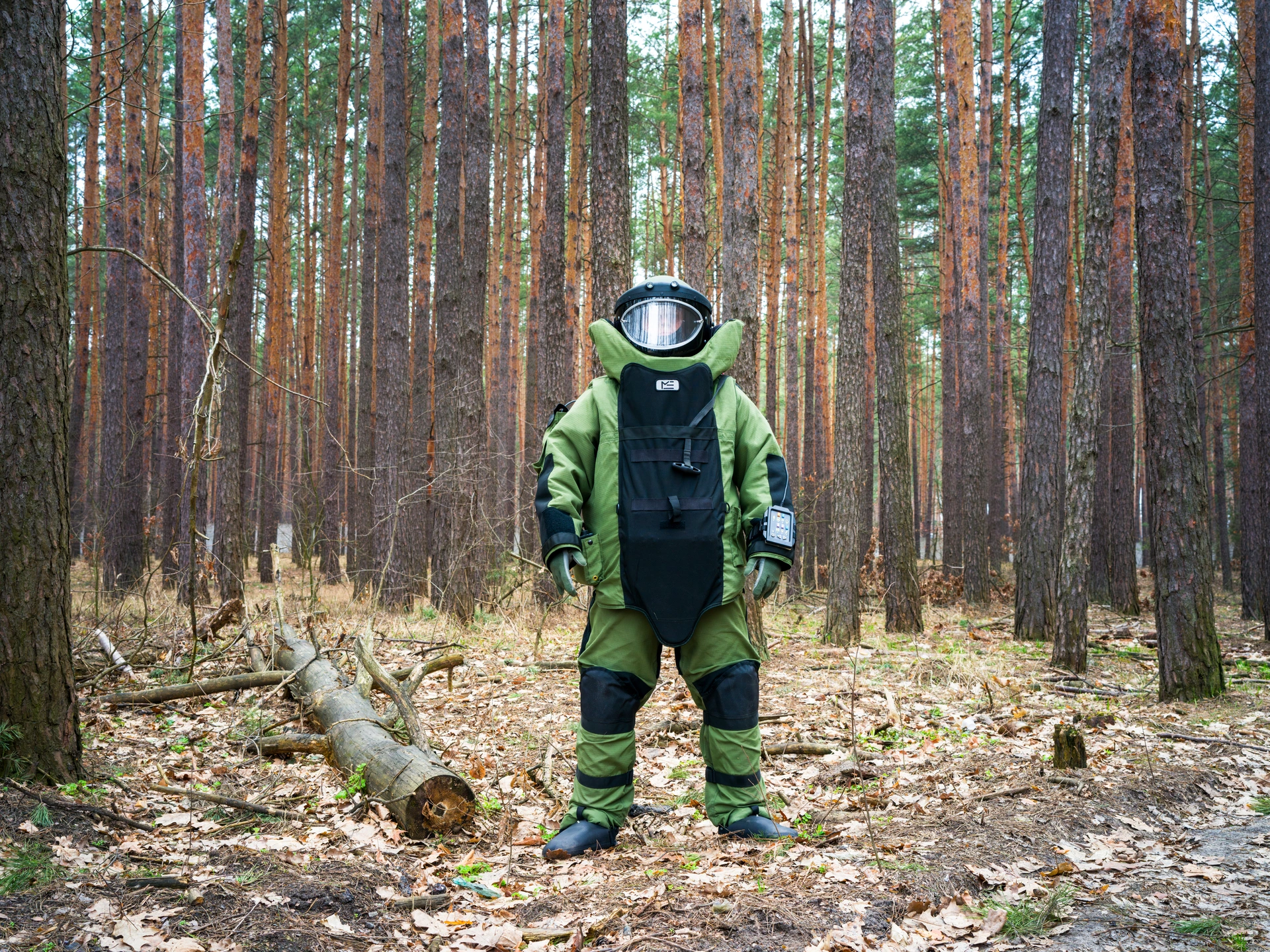
Over a hundred different types of ordnance were used in Ukraine since the start of the full-scale invasion. Almost daily, sappers battle against new developments and devices designed to kill or injure.
To make safe and defuse the most complex missiles and booby traps, the State Emergency Service of Ukraine (SESU) relies on Explosive Ordnance Disposal (EOD) teams.
Throughout Ukraine, there is a shortage of trained sappers and EOD specialists. There are currently at least 3,500 sappers in the country – 1,700 of them from the State Emergency Service of Ukraine. "This is a huge number, but it is not enough," says Ukrainian Deputy Economy Minister Ihor Bezkaravainyi.
"I think that even if we collected all the sappers or trained people who can clear mines from all over the world and brought them to Ukraine, it would still not be enough."
Kyiv, Obolonskyi District,
March 2024
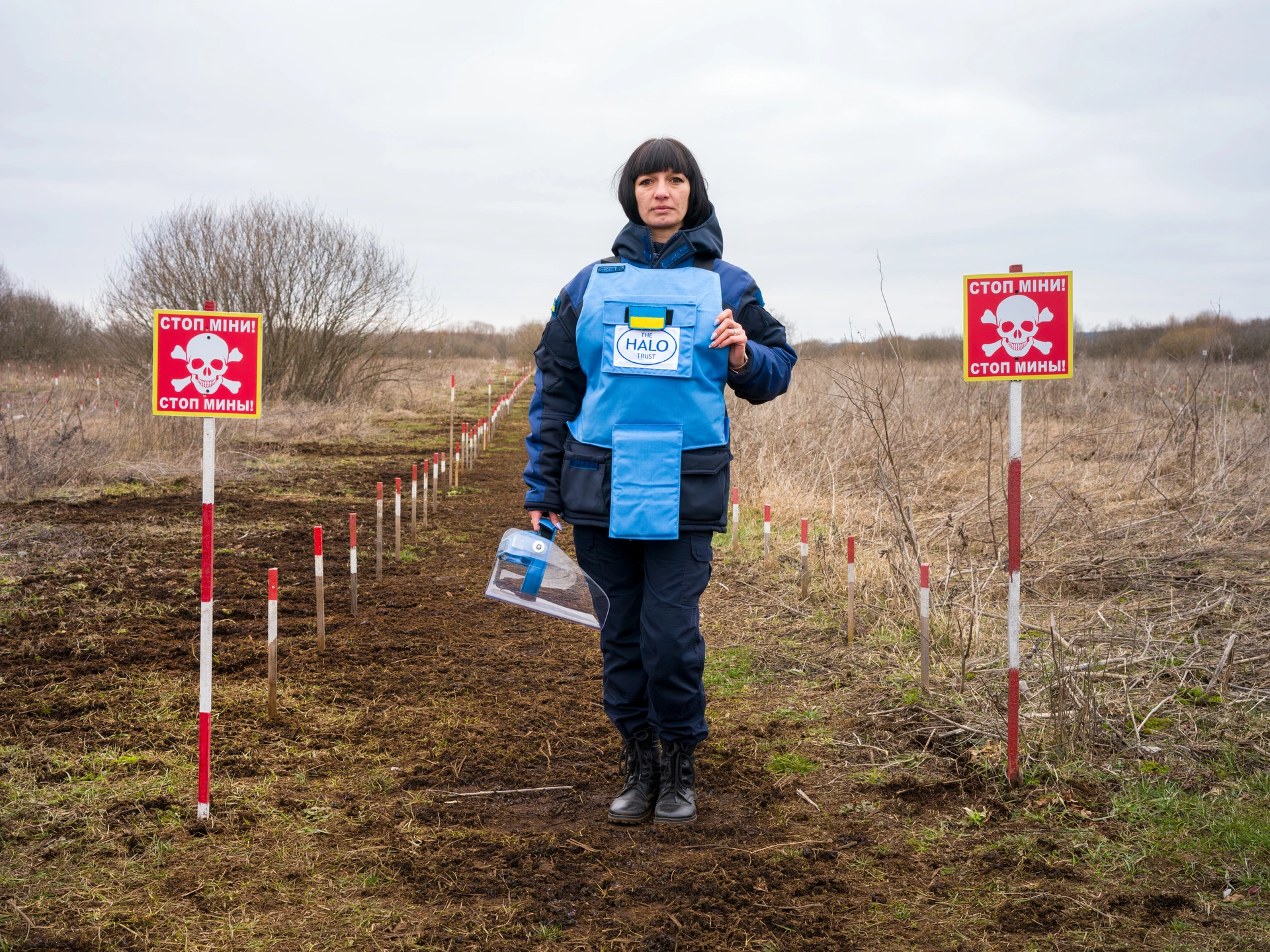
Over the last two years, the HALO Trust has scaled up its efforts to address the vast scale of explosive contamination in Ukraine, employing over 1,200 Ukrainian staff.
"From what I see, there's a close to 50/50 proportion of men and women (on the staff)," says volunteer deminer Oleksandra Yevdokimova. "Many of the women have kids. I think every one of us should do whatever they can do to support the country."
Deminer and Team Commander, HALO Trust
Brovary, Kyiv Oblast,
March 2024
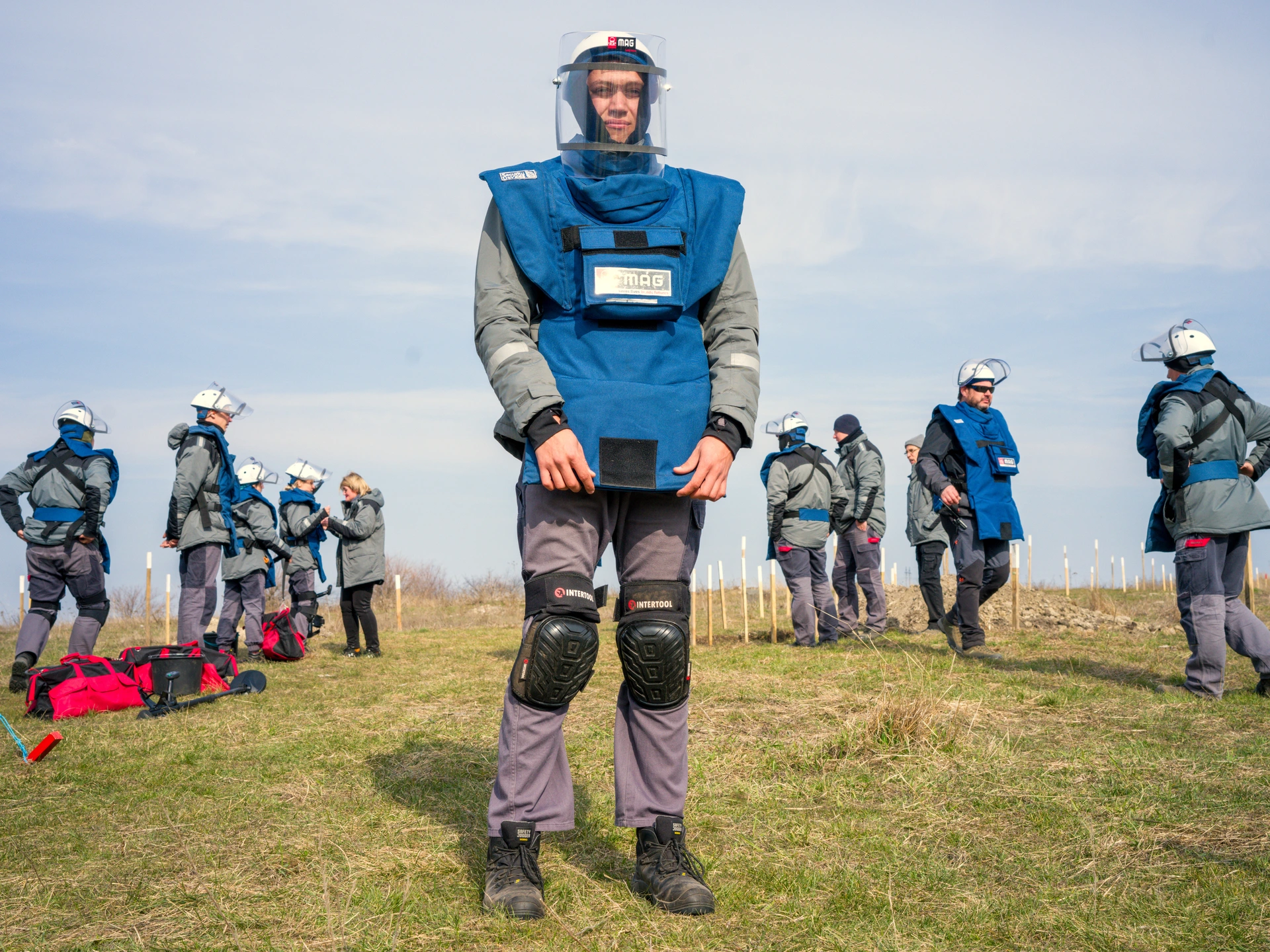
“I'm a cook by profession, but my dad works in the State Emergency Service of Ukraine as a firefighter, and my brother became a firefighter," says newly trained deminer Oleksandr Kucher.
"Of course, my father said I should join the firefighters department as well. But the only job offer that they had was Lifesaver — the guy who climbs the ladder up the buildings — and I'm afraid of heights! So, I decided to join the MAG. Actually, after the months of training… today is my first day as a deminer!"
Deminer at NGO Mines Advisory Group (MAG)
Taborivka, Mykolaiv Oblast,
March 2024
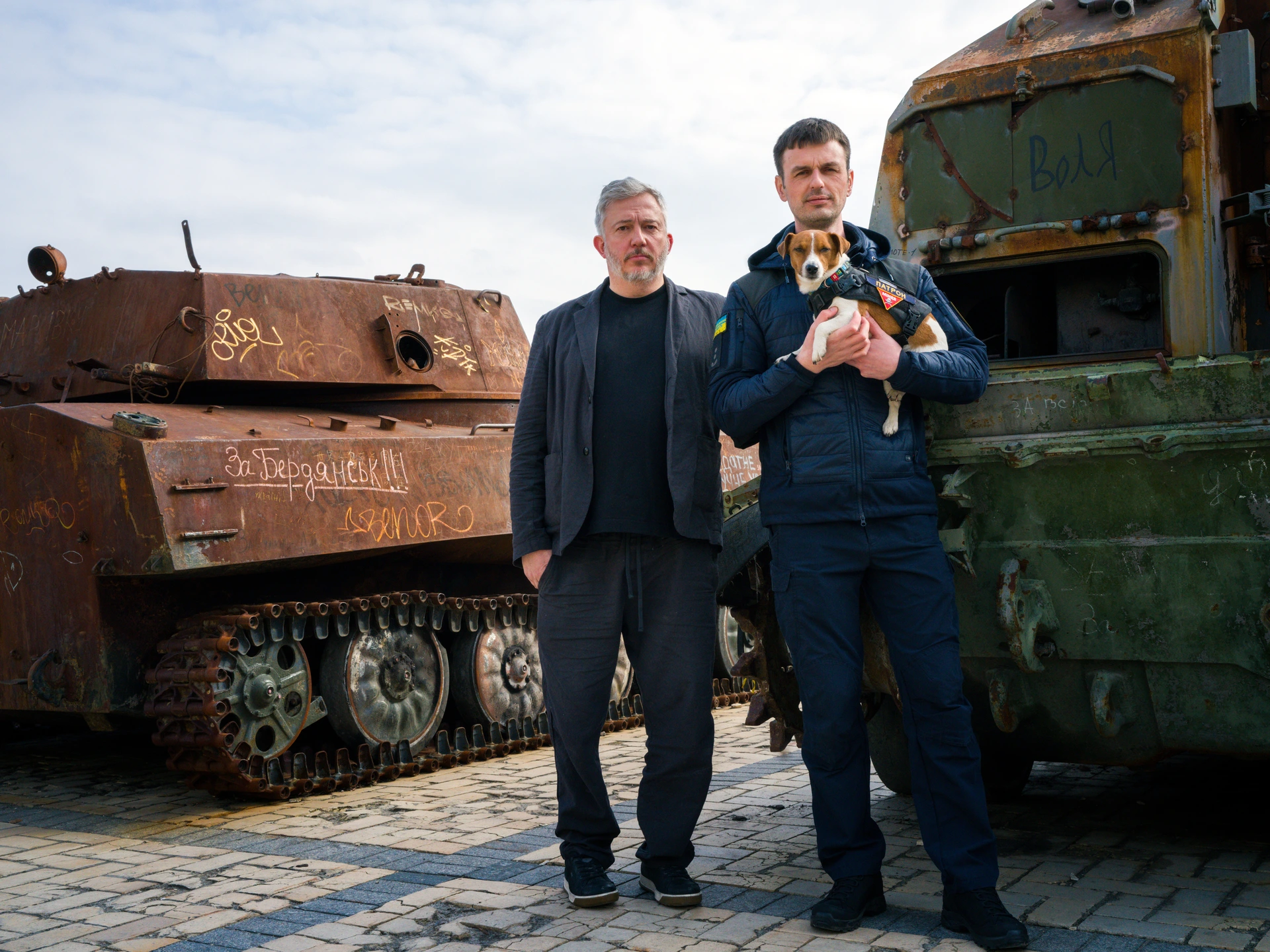
On 24 February 2022, hours after Russia launched its full-scale invasion, Patron, a Jack Russell terrier, and his trainer Mykhailo Iliev began working to disarm unexploded Russian bombs and landmines near their home city of Chernihiv. After the State Emergency Service of Ukraine posted a video of Patron, in which he can be seen sniffing around debris and sitting in Iliev's lap while wearing a small bulletproof vest emblazoned with his name, he quickly became a viral hit.
Patron is still working with Iliev as a sapper, but he has also become vital in teaching Mine Risk Education to children in schools. With a cartoon, book, song and a YouTube channel, Patron is continuing to raise awareness of the landmine issue in Ukraine.
Here, Patron and Iliev are seen with Giles Duley — photographer, chef and CEO of the Legacy of War Foundation, who has been documenting the ongoing war in Ukraine since 2015. Duley is also a landmine survivor and a triple amputee. In 2022 Duley became the first United Nations Global Advocate for persons with disabilities in conflict and peacebuilding situations.
Kyiv,
March 2024
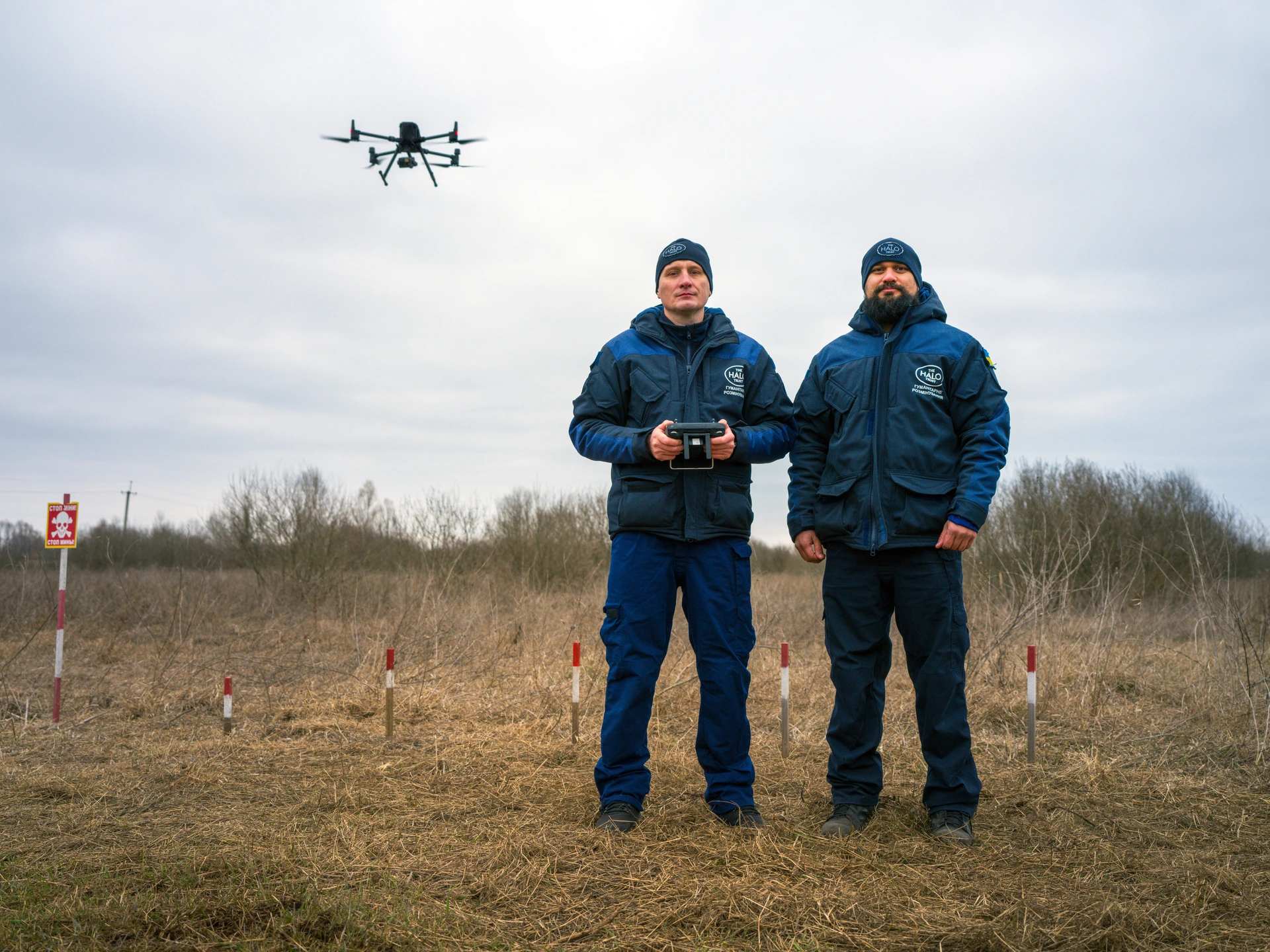
Demining charity the HALO Trust earlier worked in the eastern regions of Ukraine, and since the start of the full-scale Russian invasion has built a new mine clearance centre of operations, initially based near Kyiv, to respond to the urgent humanitarian need caused by mines, cluster bombs and other unexploded dangers. Their areas of operation now include Kyiv, Chernihiv, Sumy, Kharkiv, Mykolaiv and Kherson oblasts.
HALO uses unmanned aerial vehicles or UAVs to capture high-resolution imagery for surveying minefields, but it is also increasingly using them in an inspection role, looking for above-ground explosive devices such as IEDs, trip wires and fragmentation mines. This speeds up the demining process, and also puts demining teams at less risk. In this image, a team is working with a DJI Matrice 300 drone.
Brovary Kyiv Oblast,
March 2024
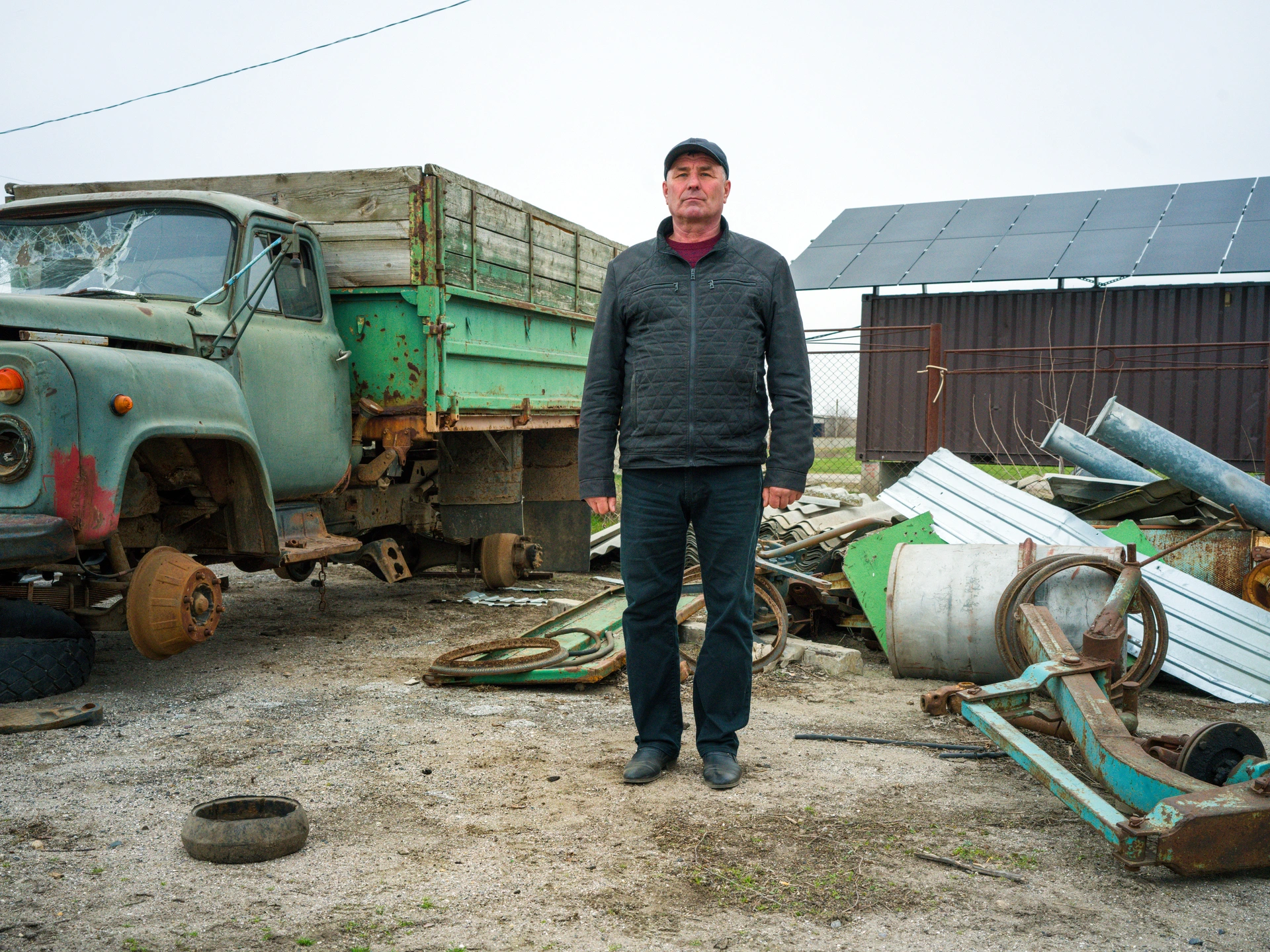
Serhii Tsvetkov's farm was occupied by Russian troops, and much of his land mined. Not only that – when Russian military forces retreated from the area, they destroyed much of his farm equipment. And to this day, shells still regularly land on his property.
“I had 3,500 hectares, but at this moment I would say that I have half that I can use," the 58-year-old Tsvetkov says. "I understand that it's very hard to demine this land, and I understand that it takes time. So of course, I worry for me and my colleagues, especially when we're working for the first time on a newly demined field.
Farmer
Kalynivka village, Mykolaiv Oblast,
March 2024
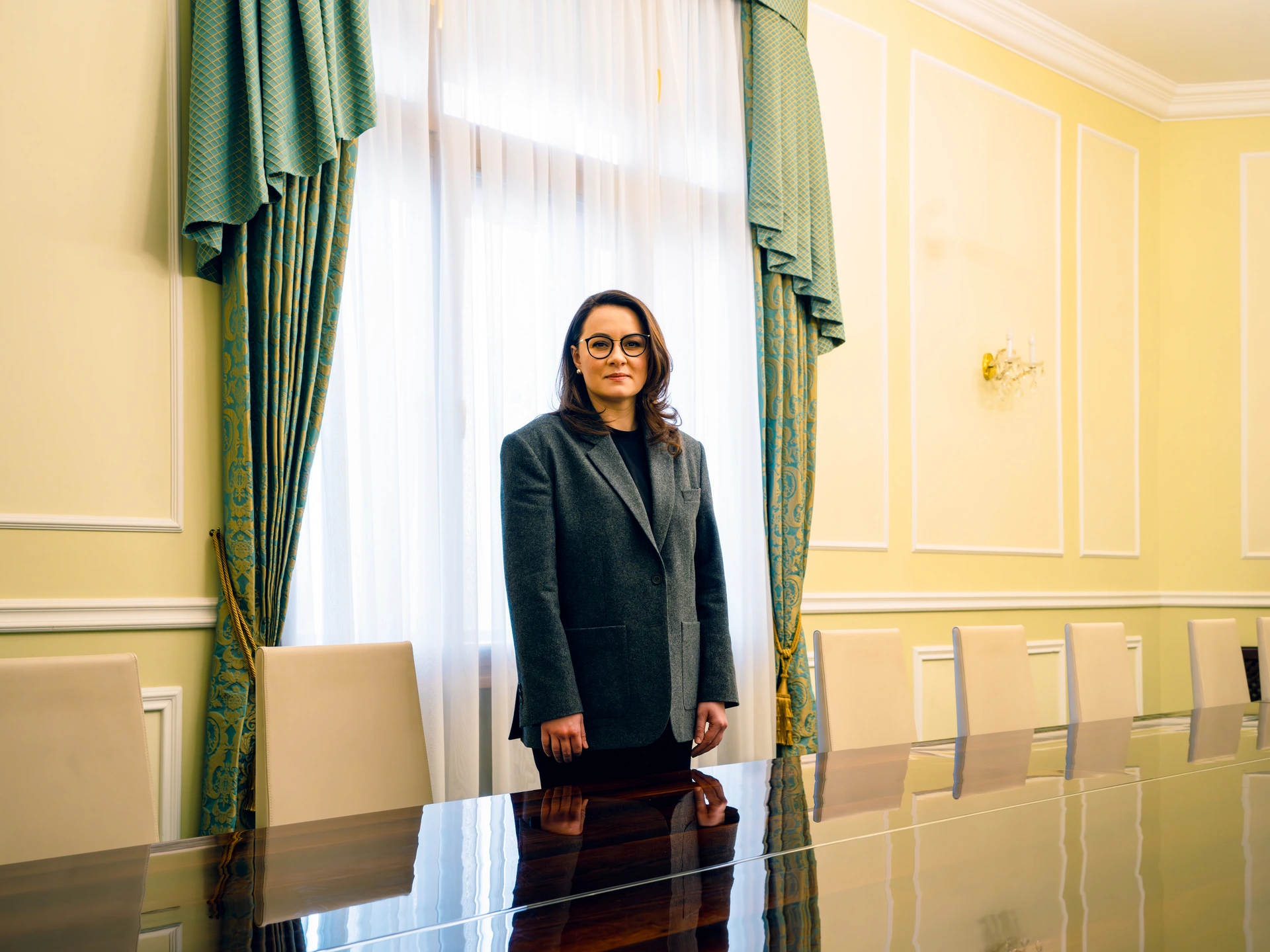
The Ministry of the Economy of Ukraine is coordinating the government's humanitarian demining efforts, recognising the negative impact of landmine contamination on various sectors of the economy, especially on the agricultural sector.
"For me, it's very important to look at the economic side of this problem," says Yulia Svyrydenko, First Deputy Prime Minister and Minister of Economy of Ukraine. "Ukraine is an agricultural country, and almost 30% of its land is potentially contaminated. That's a huge loss. People are not able to use it. So, we have to see how we can improve the procedures, how we can improve the technology, and how we can improve the regulations to return this land to productive use as quickly as possible. And of course, primarily, this is a contribution to the security of Ukrainians living on liberated territories or returning there."
"What we're trying to do now is to find a way to return land to production faster, by opening up the demining market and by innovating. I think that Ukraine will be able to find innovative approaches to speed up demining processes, and that we'll be able to replicate that experience for other countries that face the same challenges."
First Deputy Prime Minister and Minister of Economy of Ukraine
Kyiv,
March 2024
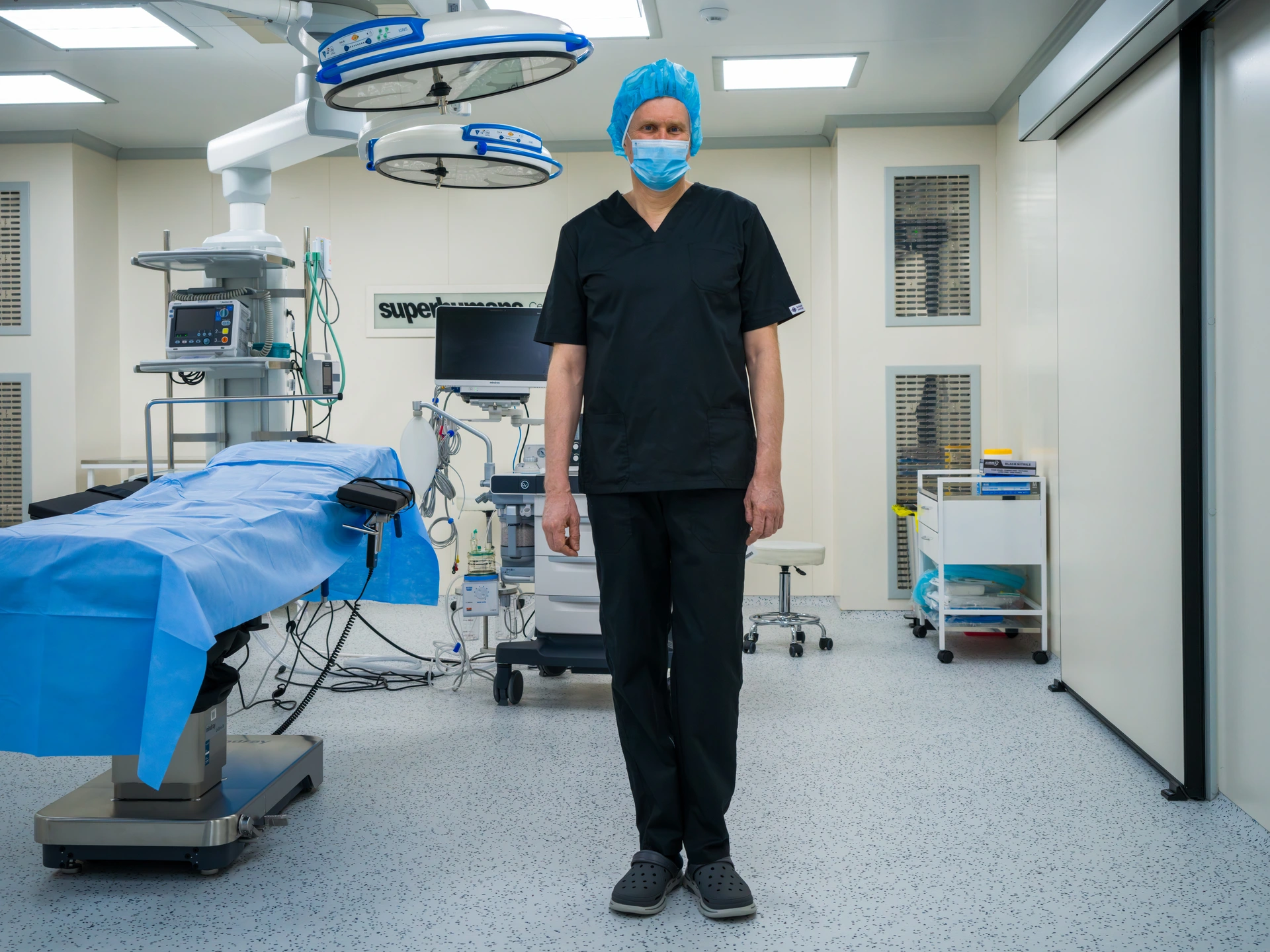
As well as providing free medical services in prosthetics, rehabilitation and psychological support, Ukraine in 2024 opened a surgical wing for reconstructive surgery. This pioneering hospital works with a team of visiting surgical specialists from abroad who perform residencies on a rotating basis.
"It's a hospital where Ukrainian surgeons and the best overseas surgeons can meet and work together in the operating theatres, so our soldiers, our civilians, get the best treatment and rehabilitation," says hospital director Andrii Vilensky.
Medical director at Superhumans Centre and Paediatrician
Lviv,
March 2024

Rusya Danilkina was just 18 when she volunteered for the army. A year later, she was severely injured – the car she was traveling in was hit by Russian cluster munition fire. As a result of her injuries, she lost a leg, and had to undergo intensive rehabilitation. She eventually ended up at the Superhumans Centre in Lviv, and has since become an important voice for those undergoing similar experiences. Her public profile and example are not just helping those recovering from similar injuries — she’s changing how those with disabilities are viewed in Ukraine.
"Even now, there are moments when I think I won't make it," Danilkina says. "The main technique is to take responsibility. Every time someone looks at me with disdain, pity, or any other negative emotion, I remind myself that I was the one who wanted to go there, I wanted it, I'm responsible for the consequences, and I'm proud of myself, so I shouldn't be ashamed."
Influencer and Superhumans First Contact
Lviv,
March 2024
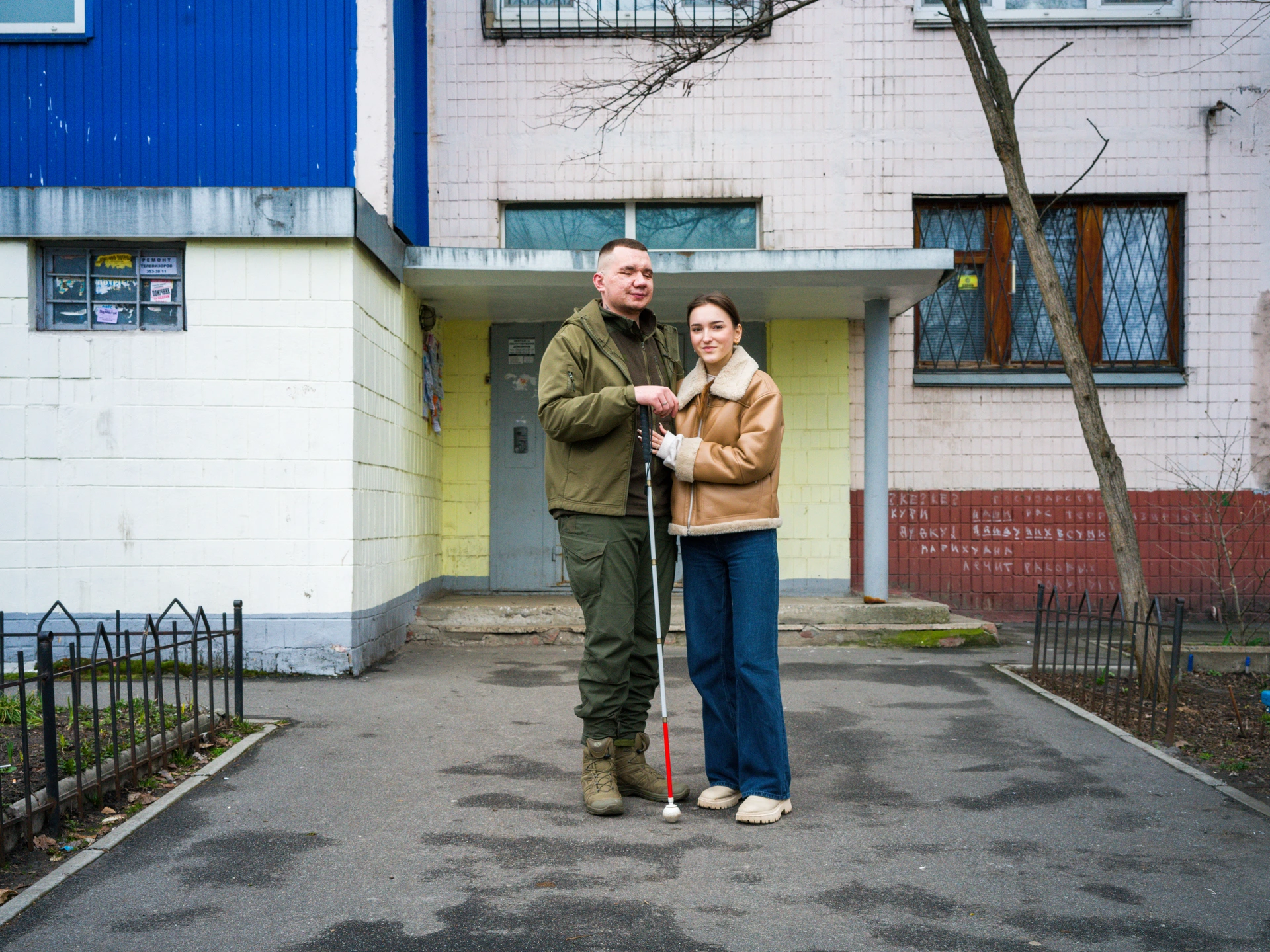
Vladyslav Yeshchenko was working for a humanitarian demining organisation when the full-scale invasion began. He transferred to an Armed Forces of Ukraine sapper unit working on the frontlines in the Donbas region. He had been on the frontline for six months without a day off. Then on 9 August 2022, whilst clearing a PFM 1 anti-personnel mine (the green parrot or petal mine), another mine self-detonated, starting a chain reaction. In the resulting explosion, Vladyslav lost both of his eyes, fractured his skull and partially lost his hearing.
After four months in hospital and extensive rehab, Yeshchenko co-founded “Let's See the Victory,” a charity project that supports the recovery of blind people who lost their vision due to the war. His wife Valeria is responsible for communications and the management of the foundation. They were married in August 2023.
"Someone in the military who has lost their eyesight will initially be in a very bad way," Yeshchenko says. "They think that their life has come to an end, and that they cannot live independently, and unfortunately, it can lead to suicide. The best way to rehabilitate this person is to make them feel that people still need them and that they are proud of them. That's why our charity retrains people to get a new career and our team of specialists help them to use computers, to use telephones, to go out to buy groceries alone, to show them they can still do all of these things."
Let's See the Victory Foundation
Kyiv,
March 2024
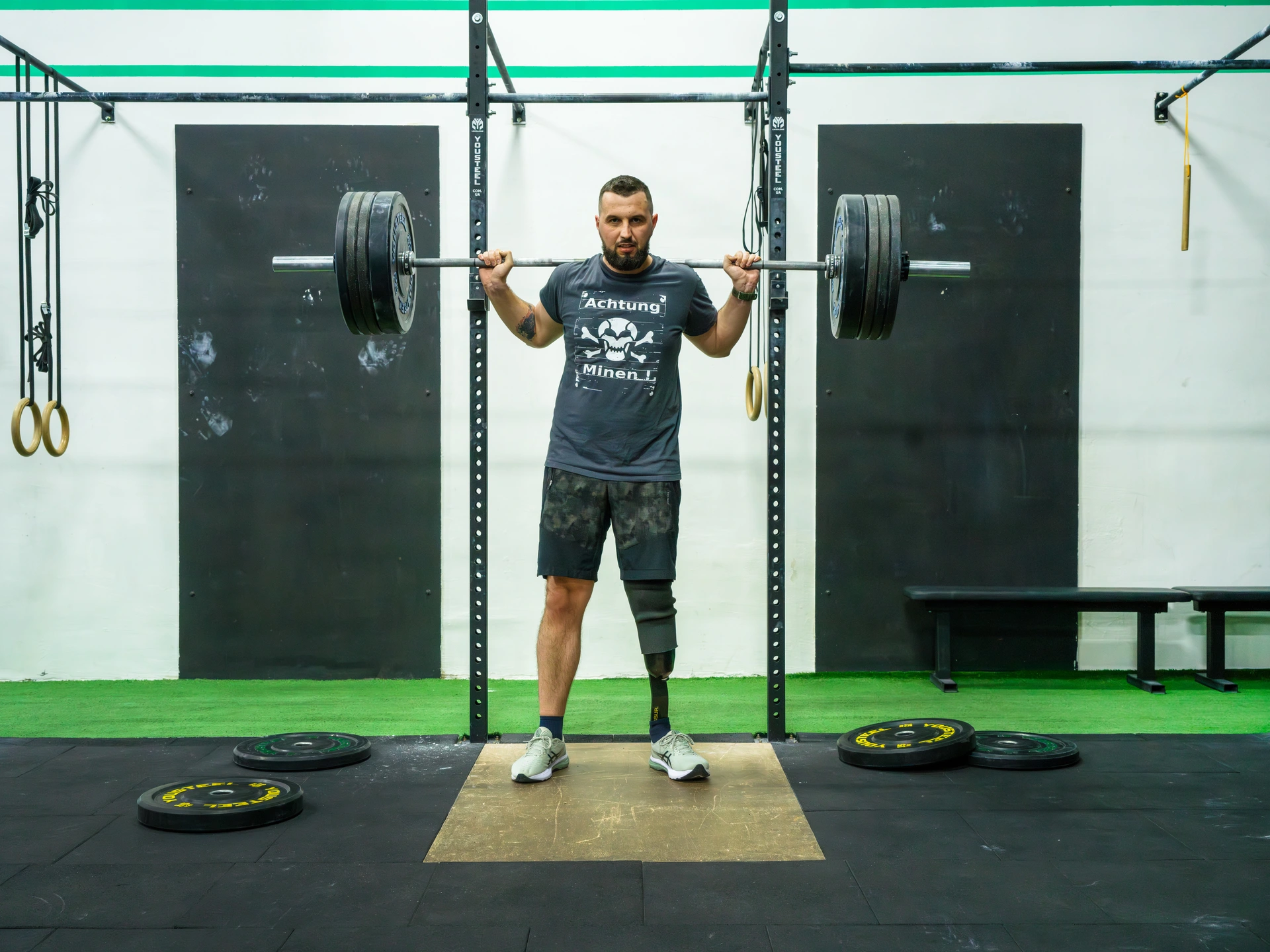
Ihor Bezkaravainyi was injured by a landmine in 2015 during fighting in Donetsk Oblast, when his armoured personnel carrier struck an anti-tank mine. Since then, Bezkaravainyi has gone on to be a para-athlete, winning bronze at the 2022 Invictus Games for soldiers injured in war. He has also served as Deputy Minister of Veteran Affairs of Ukraine, and in July 2023 was appointed Deputy Minister of Economy, with a special focus on humanitarian demining.
"When I worked in the Ministry of Veterans Affairs, we had data, and I remember that we had something like 1,500 veterans with these types of injuries (amputations)," Bezkaravainyi says. "But right now, it's thousands and thousands and thousands. It's a completely different situation."
Deputy Minister of Economy, Landmine Survivor and Para-Athlete
Kyiv,
March 2024
Our Partners
We are grateful for the contributions to mine action in Ukraine made by UNDP partners – the European Union, and the governments of Belgium, Canada, Croatia, Denmark, France, Germany, Japan, Republic of Korea, Malta, the Netherlands, New Zealand, Norway, Spain, Sweden, Switzerland, and the United Kingdom.
UNDP in Mine Action
UNDP is playing an important role in supporting Ukraine's government as it tackles the effects of mine contamination. The UNDP's focus is on ensuring concerted efforts, advising on the preparation and implementation of national strategies and standards, and facilitating safe returns through explosive ordnance surveying and disposal to enable demolition and debris removal for reconstruction and recovery.
Through the provision of specialized equipment, technical assistance, and expertise, and by leveraging innovative technologies such as satellite imagery, remote sensing, artificial intelligence and machine learning, UNDP is assisting in rapid land release, significantly reducing the amount of potentially contaminated areas, and aiding the return of agricultural land back to productive use.
Through initiatives like the Model of Victim Assistance, UNDP is working to enhance immediate and life-saving medical care, ongoing rehabilitation, mental health and psychosocial support, and supporting those affected by landmines to discover new opportunities for a fulfilling and dignified socio-economic life.
Over the past three decades, UNDP and its partners have worked in over 50 countries to help them tackle the challenges posed by landmines and other explosives, aiding them in becoming free of mines and cluster munitions, and supporting their recovery and sustainable development.



